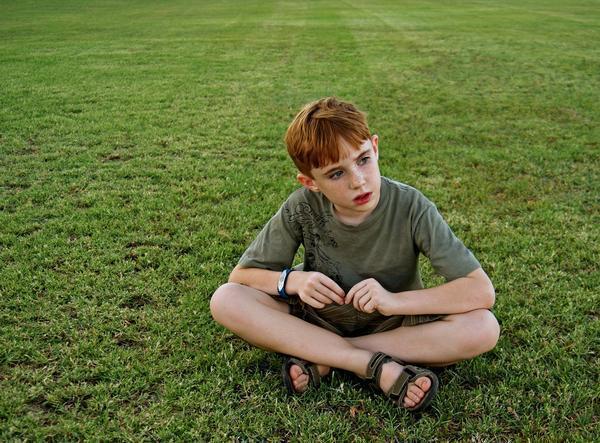
TURMOIL AT 40
Paritosh Shukla is a 47 year-old manager of a reputed banking institution. He lives with his parents who are 71 and 68 years old, his 43 year-old wife Kiran who is a volunteer in a NGO, his 24 year-old son Dipesh who is in Australia doing his MBA and 20 year-old daughter Paridi who is studying in the final year of commerce. Despite a successful married and family life, a satisfying job and no apparent stressor, Paritosh has increasingly becoming despondent about his life. The questions that constantly run in Paritosh’s mind are: Will he able to forge an adult-to-adult relationship with his grown children and spouses when they marry? Would he able to relate to his grandchildren? Has generativity become a central aspect of relationships with young individuals in the workplace? Have intimacy and an active sexual life been maintained in the face of diminished sexual drive and the environmental pressures? Is he taking adequate care of his dependent parents when their health is deteriorating physically and mentally? Is he relating to himself and his abstract needs for self-actualization in the manner that he should?
Paritosh is going through the classical midlife transition. He is in an intense reappraisal of all aspects of life precipitated by the growing recognition that life is becoming stagnant for him. It is characterized by mental turmoil and lack of action. There is a constant painful preoccupation with the examination of relationships, achievements, failures and future plans. Many of his friends are going through the same phase – some more consciously, others less painfully. They want to think about all the aspects of life and make decisions about them – while there is still time to change. The decision is probably to keep intact most major life structures like marriage and career, which have been built painfully over years; but still merit thought and consideration. His friend Shyam quit his job in a pharmaceutical industry and was considering divorce and leaving his family of elderly parents, wife and 2 children (similar to his own family). It was an upheaval of major proportions. There was significant emotional turmoil for the whole family including Shyam. He had gone through a period of great internal agitation followed by a flurry of impulsive actions, which shocked his whole family. His family’s efforts to get Shyam to stop and reconsider fell on deaf ears. Paritosh felt that Shyam had an overwhelming need to change – there and then. There was an urge to do what he wanted to do, meet new people and find himself. Nothing was wrong with his wife; he had been somewhat bored with her lately but did not have any conscious plans to leave her. Paritosh told Shyam that he was acting like an old fool and that he had better stop before he threw away his life. After the initial embarrassment and rage, Shyam analyzed his response and eventually came to admire Paritosh’s courage and appreciate the depth of his concern. He recognized his behavior as a flight from the fears of aging, loss of sexual prowess, impotence and multiple difficulties in the marriage. The confrontation produced a postponement of the move and greater willingness to discuss the complicated and painful issues in his life and himself. While the crisis was resolved for Shyam, nevertheless this whole incident left Paritosh with an increasing anxiety about the certainty of the stability he had so painstakingly built.
Right now Paritosh is struggling with the question of whether to settle for what he has or search for greater perfection. He regards his marriage with Kiran as a good fit between their individual needs, wishes and expectations – it is probably unique and irreplaceable. The marital success is now based on the successful continuation of a number of tasks like providing a safe place for conflict and differences and a satisfying sexual life. The integration of his growing children into his life could make the difference between a rich, full late adulthood and adulthood characterized by rancor and emptiness. He is also aware of his physical decline and the gradual shift in the balance of power in the family as everyone is engaged in separate but interlocking age transitions. He has observed in his parents that as the gender distinctions in elderly parents blur, his father has become more nurturing and tender, whilst the mother has adopted some of the father’s ascendant, competitive qualities, which he has relinquished. It appears that his parents are exchanging roles in late life and thus expanding their sense of self. Even the friendships that he has have lost the sense of urgency or the need for nearly constant physical presence of the friend. The gratification through relationships with Kiran, Dipesh, Paridi, his parents and his colleagues at work has replaced the pressing need to find new friends. It is not that this is only a rough time for Paritosh. He is also in a unique position in life; he can initiate and sustain friendships with individuals of different ages as well as chronological peers. He can form friendships with adolescents (avoid painful feelings about aging), with peers (outlet for same troubling issues) and older individuals (passive need for a mentor). But because these friendships are not an avenue for emotional intensity, sometimes they can be disrupted easily and without much pain.
Success and happiness in adult life are made possible by the modicum of maturity – a mental state and not an age. There should be a detailed knowledge of the parameters of human existence, a sophisticated level of self-awareness based on an honest appraisal of one’s own experience within those basic parameters, and the ability to use this intellectual and emotional knowledge and insight caringly in relation to one’s self and others. A philosophy of life has to be developed that includes an understanding and acceptance of the learning from the past, full engagement in life in the present and enhancement of prospects for health and happiness in the anticipation of the future.
Next week we will take up the issues that will help Paritosh resolve this conflict and lead a wise life. Please feel free to send in your suggestions to signsoflife@indiatimes.com



